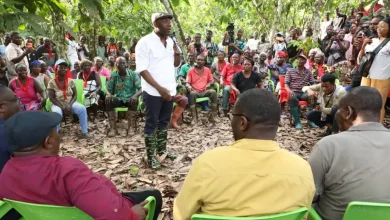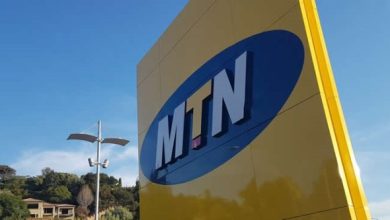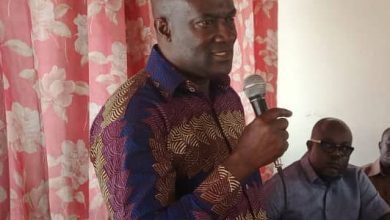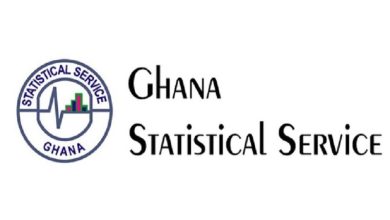NHIS receives US$27.7 million World Bank support
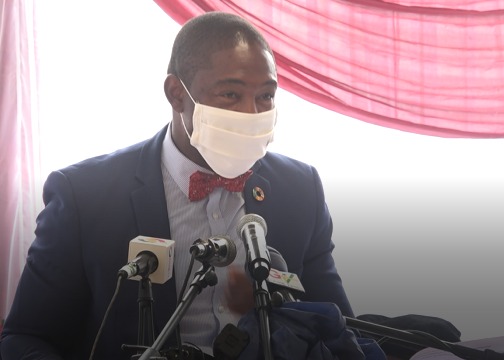
The World Bank Group is offering US$27.7million to the National Health Insurance Authority (NHIA) to increase the National Health Insurance Scheme (NHIS) annual active membership, and facilitate claims processing and payments for primary healthcare providers comprising CHPS, health centres and maternity homes under the Primary Health Care Improvement Program for Results (PforR).
The monumental programme is financed through a World Bank facility with co-financing grants from the Global Financing Facility (GFF), Canada, the UK Foreign Commonwealth and Development Operation (FCDO), and the Gavi Alliance. The programme will be implemented for four years, spanning from 2022 to 2025.
The funding is allocated based on the Disbursement Linked Result (DLR) achieved per the Disbursement Linked Indicators (DLIs) of the programme. The DLIs under the programme include increase in the membership of the NHIS, increase in the enrolment of vulnerable populations in the scheme, and improvement in claims processing and payment for the primary healthcare facilities.
The NHIA and the Social Protection Directorate of the Ministry of Gender, Children, and Social Protection (MoGCSP) collaborative effort will boost the enrolment of indigent populations, such as the disabled, orphans, widows, women, and children in the Scheme. This will be done through linkage with the National Household Registry which is also supported by the World Bank.
New NHIS leadership vision
The ‘new NHIS’ leadership’s ultimate goal is building a more resilient health insurance scheme that responds to the needs of all by providing access to quality and affordable healthcare services on a sustainable basis.
The executive management’s strategy toward achieving Universal Health Coverage (UHC) is the adoption of ‘pro-poor pathway’ interventions fastened to the legal framework that every Ghanaian should register with the NHIS.
The chief executive officer, Dr Bernard Okoe Boye, his deputies and some Directors have completed a national tour of all 16 regions as a way of connecting with staff and the citizenry, and discussed how to strengthen the NHIS and the role it plays as a vehicle for Ghana to achieve UHC.
Leadership is determined to open more offices in strategic locations to make the NHIS accessible to all. Some additional offices recently commissioned are the Western North Regional Office, Bono East Regional Office, Ahafo Regional Office, Dormaa East, Jamaan North, Asunafo North, Asutifi North, Obuasi, Asawase, Atwima Kwanwoma, Ejisu, Komenda Edina Eguafo Abirem (KEEA), Mion, Kumbungu, and Nanton.
Bono East, Sunyani Municipal, Jaman South, Kintampo Municipal, and Techiman Municipal have received newly branded operational vehicles.
Relevance
The NHIS has grown to become a major instrument for financing healthcare delivery in Ghana and it is the financial mainstay of over 4,600 credentialled healthcare service providers. Over 80 percent of the internally-generated funds of most healthcare providers are from the NHIS.
The NHIS continues to provide financial access to many people who otherwise could not afford the cost of their healthcare services. Many are now seeking medical attention early and avoiding unnecessary deterioration in their medical conditions and possible death as a result.
Digitalisation drive
The NHIA is leveraging the national digitalisation drive to improve efficiency. Some of the recent novelties include MyNHIS App, Claim-it application, and Online-credentialling capability.
MyNHIS App
As the most recent innovation, MyNHIS App empowers individuals and groups to use their Ghana Cards to register, renew and link to the NHIS without necessarily visiting any of the NHIS district offices for the same service. The App can be downloaded on the Google Play Store or Apple Store; thus, operating on both Android and iOS smartphones. It issues digitised NHIS cards and provides a mechanism for the NHIA to fulfil its statutory obligations.
The new App also enables NHIS members to securely pay registration and membership renewal fees from their mobile money wallets and bank cards. The App delivers a vastly improved renewal experience to NHIS members as it saves time and money, thereby making the scheme more accessible to all.
Electronic claims management
The NHIA is determined to attain nearly 100 percent electronic claims management (submission, vetting & payment) by the end of the year 2023. The essence is to eliminate wastage and ensure prudent use of available resources to provide the best healthcare services to NHIS active members. The introduction of electronic claims processing in 2013 has greatly improved efficiency in NHIS claims management over the years, decreasing claims processing time from months to 1-7 days for vetting of Provider Claims.
Claim-it
The ‘Claim-it’ system was introduced in restricting fraudulent activities, such as the submission of escalated claims. Claims submitted via Claim-it make it easy for vetting at the Claims Processing Centres (CPCs) in Accra, Kumasi, Tamale and Cape Coast.
The pragmatic nationwide roll-out of the Claim-it application to nearly 95 percent of providers in the year 2022 saw an increase in the number of providers submitting electronic claims from about 40 percent in 2021 to 60.3 percent by December 2022, and 86 percent by March 2023. The NHIA Claims Directorate and its Claims Processing Centres are actively assisting providers with challenges in electronic claims submission to ensure nearly 100 percent implementation of electronic claims processing.
Online credentialling
Healthcare service providers typically apply for credentials from the NHIA to enable them to serve Ghanaians under the NHIS. In creating efficiency, the NHIA introduced an online application system on its official web portal making it possible for service providers and prospective applicants to submit and renew applications electronically.
Development partners’ support
The NHIA has recurrently received support from development partners, including the World Bank Group, World Health Organization (WHO), United States Agency for International Development (USAID), United Nations International Children Emergency Fund (UNICEF), and the Korea Foundation for International HealthCare (KOFIH), among others.
The support has positioned Ghana’s NHIS as a remarkable social protection model in Africa, and this is evidenced by the number of foreign delegations who have so far visited the NHIA to understudy the NHIS operations. The World Bank Group’s recent financial support is therefore key and timely in the National Health Insurance Authority’s (NHIA) quest to achieve UHC by the year 2030.

